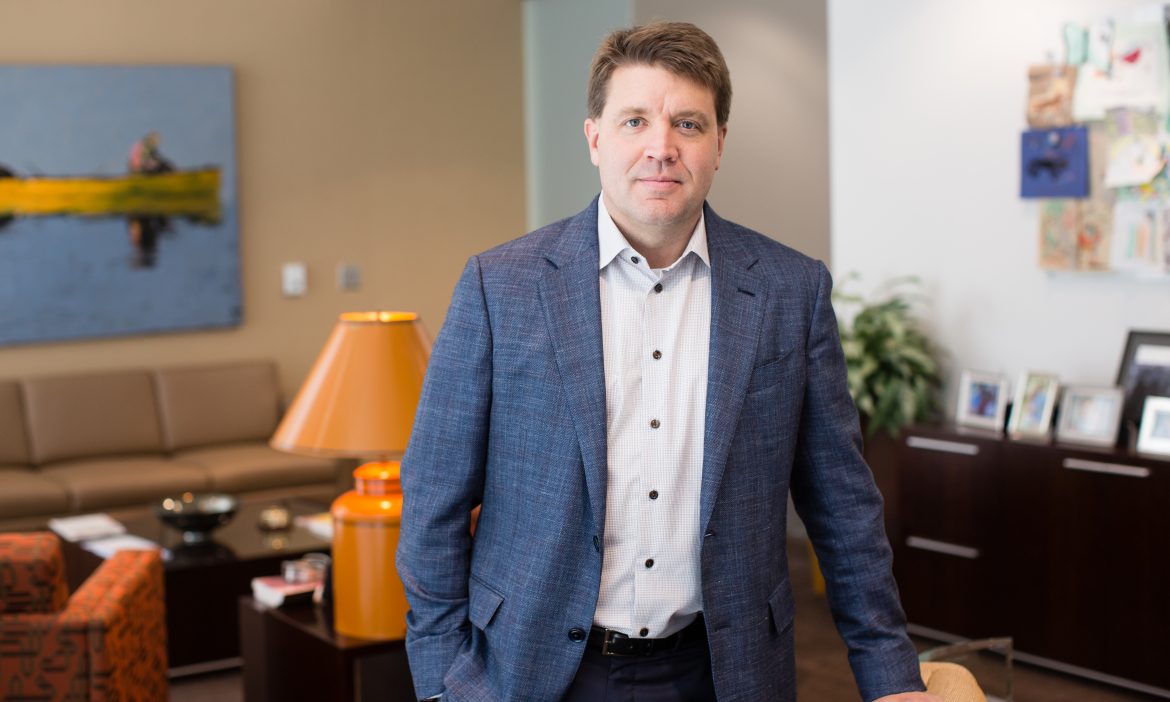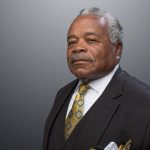Our work in the diversity and inclusion space continues to evolve, expand, and most importantly, move forward. So while BlueCross is a mature diversity and inclusion company, that maturity comes from sharing what we’ve learned from other companies and especially our employees.
Making cultural competency a top business priority ensures we’re an employer that’s truly representative of the members and communities we serve.
As part of our recent Power of We Workforce Diversity Conference, BlueCross President and CEO JD Hickey joined me to discuss what we’ve heard directly from employees during a very challenging 18 months, some of the actions we’ve taken as a company, and how the BlueSky Tennessee Institute factors into our diversity and inclusion efforts.
Below is an edited transcript of our conversation.
We often say we’re a mature diversity organization. What are your thoughts around that?
JD: In general, I think there are two types of companies when it comes to diversity and inclusion. There are those that say they take it seriously. They have somebody on their extended leadership team who has that title, who spends their day focused on it. They have a list of actions that they can point to, probably some public statements where they’ve made commitments.
In contrast, there are companies that have made diversity and inclusion a true top business priority. And the distinguishing features are they spend real time on that topic as a leadership team and as a board, they measure it, they track it, they tie their compensation metrics to it — and probably most importantly, they hold each other accountable to it. BlueCross has become intentional about all of those things, spending real time on the topic, looking at our results, looking at the work we have to do, and holding ourselves accountable for advancing that agenda.
With any ambitious and complex organization and with initiatives like ours, there’s bound to be different viewpoints. How have we navigated those?
JD: These are hard discussions. If they could happen naturally, most companies would be in a better place on this topic. But I can think of two examples, particularly early on, where some of the decisions and the path forward was contentious.
One was when we decided to set metrics and tie compensation [to our diversity and inclusion efforts]. Many other companies have put incentives around the hiring process.
A very common metric is making sure that your interview panel has a diverse pool of candidates before you move forward with interviews and an offer. We do that as well, but we took it one step further and said, “We’re going to tie our metrics to who you actually hire and the change in representation of the makeup of your department.”
The other example that comes to mind is when we added diversity and inclusion to our succession planning. A tactical result of that is we’re now having our most senior one-on-one leadership conversations with the board around how we’re each doing with the diversity agenda within our departments.

Most companies talk about their engagement and the importance of communication. How does the feedback you hear from our colleagues move you?
JD: To put that in the context of the last year, we had two big takeaways in the wake of the murder of George Floyd.
One was we weren’t doing a good enough job at listening and creating dialogue. Two, in the wake of that, many of us were freshly reminded and surprised at the amount of hurt and pain that many of our diverse colleagues felt on a day-to-day basis. And the reason we were surprised was we weren’t asking the question to begin with, and we weren’t having those dialogues. A big part of the actions we’ve taken in response has been to make sure we’re having those conversations in multiple settings, both formal and informal.
I recall the pain that was expressed in some of those meetings. As a leader, did those conversations give you any heartburn?
JD: Companies have all sorts of profiles when it comes to speaking out on public affairs, and for the most part, we’re reticent to do so. I think our belief is we impact communities primarily by the way in which we do business, not by the size of our megaphone or number of Twitter followers. But this was different. It demanded a collective response. We were glad to join it.
If nothing else, we felt the need to stand with our diverse employees, even if nobody else heard that message. So no heartburn there at all. What was painful — and you know this because we sat side by side — were the conversations. A lot of awkward silence, a lot of tears, a lot of tense moments as people were sharing parts of their lives that frankly they probably hadn’t shared before in a work setting. That was the toughest part, by far.
What recent actions that we’ve taken stand out to you?
JD: We made Juneteenth an official paid holiday. I can think of three reasons why we did that.
One, as I mentioned earlier, we weren’t listening enough. We polled our employees and asked, what should we be doing? What are the right actions in response to this moment? If we’re going to do a better job listening, we should start with what our employees tell us is important.

Two, we thought it was an important signal that this was different. I can’t remember the last time we made a new paid company holiday; my guess is it was in the ’80s with MLK Day. That’s not something we do on a regular basis, even a once-a-decade basis, so treating this differently felt like a pretty big symbol.
Three, we wanted to commit on the front end.
We didn’t want [our Juneteenth recognition] to be a surge and retreat. We wanted this to be a right-hand turn where we were fundamentally different going forward forever.
We know our work must continue, both internally and externally. A big part of that is our recruitment efforts. How will the BlueSky Institute contribute to those?
JD: There are a few areas where the talent supply isn’t very deep in terms of diverse candidates — particularly in the realm of information security [IS].
We’re a data science company. If you think about where we add value to our members and how we differentiate ourselves from our competitors, it’s increasingly around data analytics. We have over 1,000 information security professionals in the building, but at any given point, we have 50 to 100 open positions. We can’t get the quantity and the quality of IS talent that we need — and we certainly can’t get the diverse candidates we need. So we decided to lean into that space.

We’re starting our own bachelor’s of computer science degree with East Tennessee State University [ETSU]. These students will sit side by side with our own IS professionals. They’re going to learn using our systems and graduate in two years. We’re hoping we can create a career sector pipeline that gives people exposure and allows them both to build a skill set, but also potentially test whether they have a passion for a job with our technology teams.
And our goal there extends beyond training the next generation of entry-level programming talent, correct?
JD: The goal is to train the next level of senior leadership at BlueCross. Again, we’re a data science company and whether it’s the next CEO or the one after that, I believe that person will need a data science background. And so our goal here is to create a talent pipeline for ourselves where we have unique access to diverse candidates that we wouldn’t have otherwise, again, as a business priority.
But we also treat the BlueSky Institute as open code and open source, and our expectation is that ETSU or other Tennessee post-secondary institutions pick this model up. They can replicate the curriculum at other companies across Tennessee and elsewhere.


 Ron is responsible for cultivating a corporate culture where diversity and inclusion are aligned with the company's strategies and values. He provides strategic leadership and counsel for diversity initiatives within the organization, including diversity awareness training, recruitment, cultural competency training, employee development and community outreach.
Ron is responsible for cultivating a corporate culture where diversity and inclusion are aligned with the company's strategies and values. He provides strategic leadership and counsel for diversity initiatives within the organization, including diversity awareness training, recruitment, cultural competency training, employee development and community outreach.